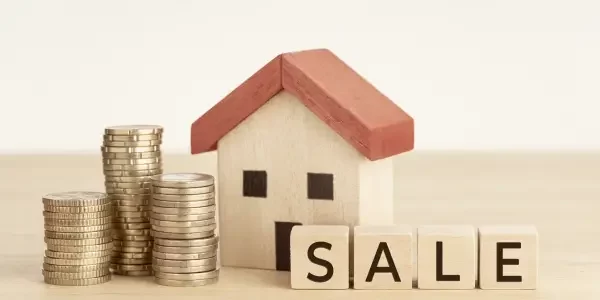
Key Takeaways
- Question: “Can Executor Sell House?” Executors can sell estate property but must act in the best interest of the estate.
- Selling a house for cash simplifies the probate process and speeds up estate settlement.
- Beneficiaries can challenge an executor’s decisions if they believe the estate is being mismanaged.
Table of Contents
- Selling an Inherited House Through an Executor
- Can an Executor Decide to Sell a House?
- Can an Executor Refuse to Sell a House?
- Can an Executor Sell a House Without Beneficiaries Approving?
- Can an Executor Sell Property to Himself?
- Can Executor Sell Property Below Market Value?
- How Long Does an Executor Have to Sell a House?
- Why Sell Your Inherited Property for Cash
- Conclusion
- Frequently Asked Questions
Selling an Inherited House Through an Executor
Inheriting a property can feel like a rollercoaster ride filled with twists and turns, leaving you to wonder what to do next. If you’re the executor of the estate or one of the beneficiaries, figuring out the ins and outs of selling that house can be a daunting task, especially if it’s your first time dealing with such responsibilities.
This guide will walk you through the role of an executor, focusing on whether they can sell the inherited property and what legal duties they need to consider. We’ll explore important factors to keep in mind and show how selling an inherited home for cash can be a quick and easy option for everyone involved. By the end, you’ll have a better grasp of your options, making the process a whole lot smoother. You’ll be able to find out the answer to “Can executor sell house?”. After all, managing an estate doesn’t have to feel like climbing a mountain, sometimes, a cash offer is the best way to enjoy the view from the top!
What is the Role of an Executor?
Before diving into whether an executor can sell a house, it’s important to understand their overall role. The executor is legally responsible for managing the deceased person’s estate. This includes settling any debts, ensuring that taxes are paid, and distributing assets according to the will or state laws if no will exists.

When a house is part of the estate, the executor might have to decide whether it should be sold. Many people ask, “Can executor sell house?” In some cases, the will might specify what should be done with the property, while in others, the executor has the discretion to make decisions in the best interest of the estate.
| Executor Responsibilities | Description |
| Settle debts | Pay off any outstanding debts or obligations using estate assets |
| Distribute assets | Ensure that all estate assets, including property, are distributed according to the will |
| Manage the estate | Handle day-to-day affairs, such as maintaining the property, paying taxes, and dealing with legal matters |
An executor must always act in the best interest of the estate and its beneficiaries. Their role is a fiduciary one, meaning they must prioritize the well-being of the estate above their own interests.
Can an Executor Decide to Sell a House?
If you’re asking, “Can executor sell house?” Yes, an executor can decide to sell a house under most circumstances, particularly if the sale is necessary to cover estate debts or if the will specifically directs them to do so. Even if the will doesn’t provide specific instructions about selling the house, an executor still has the authority to move forward with a sale if it’s in the best interest of settling the estate.
For example, if there are multiple beneficiaries and no single person is interested in keeping the property, selling the house and dividing the proceeds might be the simplest solution. Additionally, if the estate has outstanding debts, selling the property may be necessary to cover those expenses.

In some cases, the executor might not need to sell the house at all. If the estate is solvent and there are other assets to cover debts, the house could be transferred directly to the beneficiaries according to the will.
Can an Executor Refuse to Sell a House?
An executor can refuse to sell a house if the sale is not necessary for settling the estate or if the will directs that the house be retained by a beneficiary. However, this refusal must be justified and aligned with the best interest of the estate.
For example:
- If the will states that the house should be given to a specific beneficiary, the executor may refuse to sell it, even if others prefer a sale.
- If the estate is solvent and selling the house isn’t required to pay debts, the executor might decide to retain it in accordance with the will’s directives.
On the other hand, if beneficiaries want the house to be sold, they may be able to challenge the executor’s decision if they believe it’s causing undue delay or financial strain. Refusal to sell can lead to legal complications if beneficiaries or creditors believe the executor is acting against their interests.
Can an Executor Sell a House Without Beneficiaries Approving?
Yes, an executor can sell a house without getting approval from the beneficiaries, as long as they are acting within their legal rights and following the instructions of the will or probate court. Executors are granted legal authority through probate to make decisions on behalf of the estate, and they do not need permission from the beneficiaries to sell estate property. However, beneficiaries have the right to contest the sale if they believe the executor is not acting in the estate’s best interest.
| Scenario | Can Executor Sell House Without Approval? |
| Will specifies sale | Yes, the executor must follow the will |
| Will is silent | Yes, if the sale benefits the estate |
| Beneficiaries object | Yes, but objections can be raised in court |
Get An Offer Today & Pick Your Close Date
Fill Out the Form and Our Team Will Call With Your Offer
Can an Executor Sell Property to Himself?
Selling property to oneself as an executor is generally prohibited due to the conflict of interest it presents. Executors are fiduciaries, meaning they are legally required to act in the best interest of the estate and its beneficiaries. Self-dealing, where the executor sells property to themselves, often raises red flags, and such a sale would typically need approval from all beneficiaries and the court to proceed legally.
If beneficiaries suspect that the executor is acting in their own interest rather than in the estate’s best interest, they can challenge the sale in court. To avoid this, the executor should disclose any personal interest in the property and ensure that all parties involved agree to the terms.
How Long Does an Executor Have to Sell a House?
There isn’t a specific timeline for how long an executor has to sell a house, but the sale typically needs to occur within a reasonable timeframe during the probate process. The length of time can depend on several factors, including the complexity of the estate, the condition of the property, and the real estate market.
On average, probate can take anywhere from six months to two years to complete. The executor is responsible for ensuring that the estate is settled within this time, which may involve selling the house if it’s necessary for covering debts or distributing assets. Delays in selling the property without a valid reason can lead to legal challenges from beneficiaries or creditors.
| Factor | Timeframe for Selling the House |
| Simple estate | 6–12 months |
| Complex estate | 1 year or more |
Get An Offer Today & Pick Your Close Date
Fill Out the Form and Our Team Will Call With Your Offer
Why Sell Your Inherited Property for Cash
Selling an inherited house for cash can be an excellent option if you want to speed up the probate process and avoid complications like making repairs or dealing with buyer financing. Cash sales allow the executor to quickly convert the property into liquid assets, which can be used to pay estate debts or distributed among beneficiaries.

At 3 Step Home Sale, we specialize in helping people sell inherited homes quickly and easily. Our cash offers provide a fast, hassle-free solution, allowing executors and beneficiaries to settle the estate without the stress of traditional home sales. By selling for cash, you can enjoy benefits such as:
- Speed: Cash transactions can close quickly, often within a week or two.
- Simplicity: No need for repairs, staging, or extensive showings.
- No Agent Fees: You can avoid the costs associated with real estate commissions.
- Immediate Cash Flow: Funds can be distributed to beneficiaries or used to cover estate debts right away.
Conclusion
Selling an inherited house can feel overwhelming, but it doesn’t have to be. Executors are responsible for managing and settling the estate, which includes the authority to sell the property. They can do this without needing approval from the beneficiaries, but it’s essential to act in the estate’s best interest and avoid any conflicts of interest.
By understanding these key points, executors can prevent complications and improve communication with everyone involved. Although it can be a stressful process, the right approach can make things easier. A cash offer might be the quickest and simplest way to settle the estate. So, if you’re ready to turn that inherited house into cash without all the hassle, contact 3 Step Home Sale today for a free, no-obligation cash offer!
Frequently Asked Questions
How long does an executor have to keep estate records?
- An executor should generally keep estate records for 7 to 10 years after the estate is settled. These documents, like wills and deeds, could be important if legal issues arise later. While it’s possible to dispose of them after this period, keeping digital copies for future reference is a good idea.
Who is the best person to be an executor?
- The ideal executor is a trustworthy individual who understands your wishes and is capable of handling complex legal and financial responsibilities. Typically, people choose a close friend or family member for this role. It’s important that the person can manage estate tasks impartially.
Do children inherit debt?
- Generally, debts are paid from the deceased’s estate, not by their children or heirs. The executor handles paying off creditors before distributing any inheritance. However, in some cases, certain debts may pass on depending on state laws or if the debt was co-signed.
How long does the executor have to pay the beneficiaries?
- The executor usually has about a year to distribute assets to beneficiaries, but this can vary depending on the estate’s complexity. Delays can occur if legal disputes or complications arise. It’s important for the executor to communicate with beneficiaries during the process.
Can executor sell house before probate?
- An executor typically cannot sell a house before probate unless it was passed directly to an heir through mechanisms like a living trust or joint ownership. If no such arrangements are in place, the property must go through probate. Selling it before probate is complete is generally not allowed.
Sell Your House Fast In:
Arlington | Norfolk | Virginia Beach | Germantown | Upper Marlboro | Waldorf

